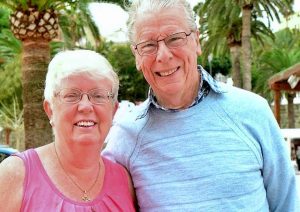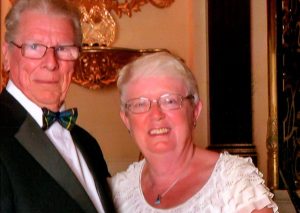The loneliness of living with dementia during lockdown
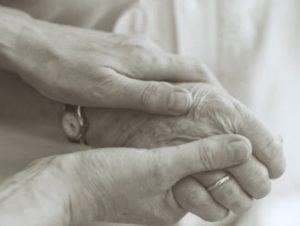 These are the lockdown stories of three women, Jan, Pam and Jenny, from across Cornwall and their loved ones, suffering from dementia.
These are the lockdown stories of three women, Jan, Pam and Jenny, from across Cornwall and their loved ones, suffering from dementia.
For people living with dementia in care homes, the impact of this pandemic has been devastating. What seemed like short-term measures have gone on and on with consequences worthy of a dystopian novel.
Except this is terrifyingly real for the most fragile and vulnerable in our community. Families separated from loved ones and loved ones left to a terrifying world of masks, collapse of life-shaping routine and absence of human touch from those who love them. Care-workers do everything they can, but the nature of dementia makes communication and retention of vital information almost impossible. The fear of families that their loved ones feel abandoned is very acute.
Care homes are frontline, trying to cope in very difficult circumstances. Charged with looking after those most at risk from the virus, they have struggled with lack of clarity. It has been a consistent barrage of governmental level mismanaged care decisions, lack of PPE in the early days and chronic staff shortages.
In the news recently was the story of the daughter arrested trying to take her very elderly mother out of the care home so she could look after her at home. It’s a situation many can relate to, and who wouldn’t want to do the same?
A model for how dementia care could be navigated…
Jan from Falmouth lost her mother, Frances Biggar, within a few weeks of the first lockdown. “I don’t have a horror story for you,” said Jan. “My mother died relatively peacefully in her care home with me by her side.” Jan’s story should be held up as a model for how care could be navigated during this terrible time.
The care home closed its doors ahead of the official lockdown as it was acutely aware of the risks. In that first week, Jan wasn’t able to visit her mother. “It was so hard. Mum was 100, and although she had dementia, she also had moments of lucidity and didn’t like it when she was confused and tried to pretend that she wasn’t. I was her north and south and she looked to me as the bridge between her confusion and what was being said or going on around her. I gave her security and reassurance. We saw each other every day and that kept her anchored.”
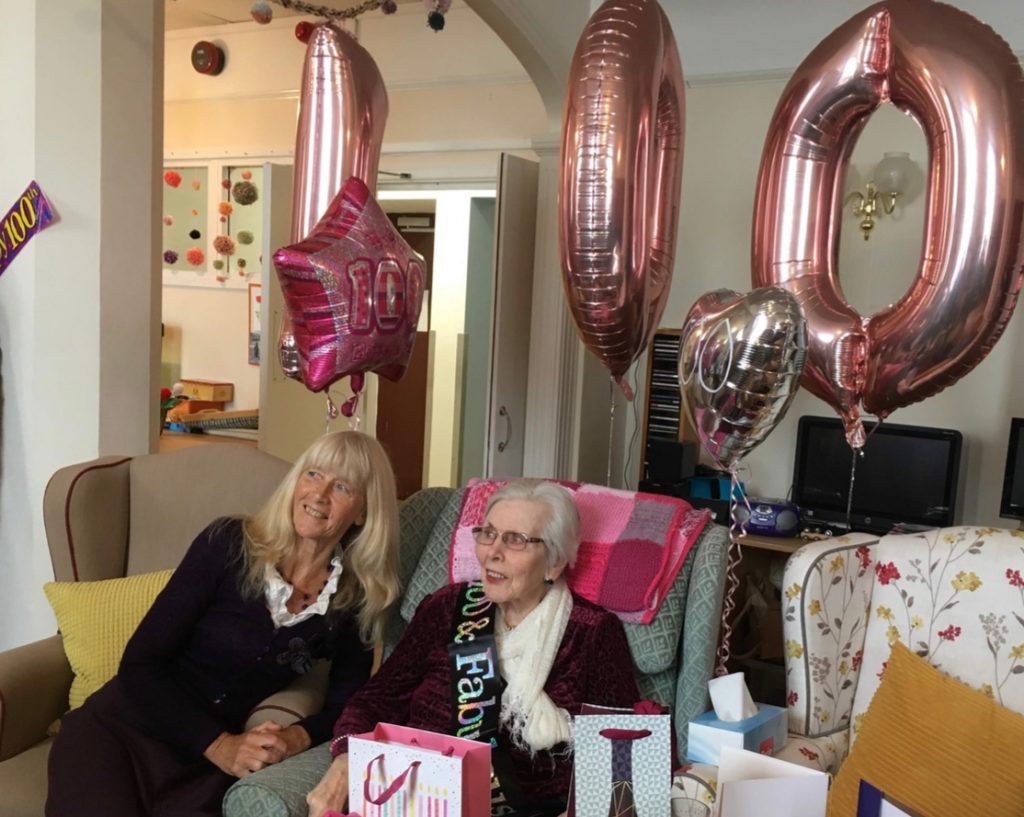
Jan and mother Frances on her 100th Birthday!
“I was her north and south and she looked to me as the bridge between her confusion and what was being said or going on around her,” says Jan of her mother, Frances who was 100 years old.
But in the week that Jan couldn’t see her mother, Frances had, they think, a stroke. Instead of keeping Jan away, the care home said that so long as she was self-isolating, she could come in, just to her mother’s room, and care for her. Which she did.
“I am so very grateful. If I had to stand at the window it would have been agony. Mum wouldn’t have understood why I couldn’t come in. As it was, I was able to be with her. Mum was a Christian and openly said, ‘It was time for the good Lord to take me,’ and very soon he did. I’m so grateful, they even let me stay overnight just before she died.”
If I had to stand at the window it would have been agony. Mum wouldn’t have understood why I couldn’t come in
Jan’s experience is sadly far from universal.
… And what is sadly more typical, the worry that loved ones feel abandoned
Pam, from Launceston, has been married to Reg for sixty-one-and a-half years. They’ve grown up and grown old together, built a life and raised a family. But Pam hasn’t seen Reg since his birthday on March 1st. Reg has Alzheimer’s and was taken into a home late last year. Pam, with their four children, did the very best she could but Reg was deteriorating. Their eldest son was diagnosed with cancer and Pam’s own health wasn’t very good.
It was a struggle to get Reg into full time care as Pam, up until that point, had been the sole unpaid carer, declining offers of external help as she felt she could manage to cook her husband his meals. It was hard to convince the authorities that the time had come for a step-change but fortunately Pam leaned into prayer and with a good social worker managed to get him a place nearby.
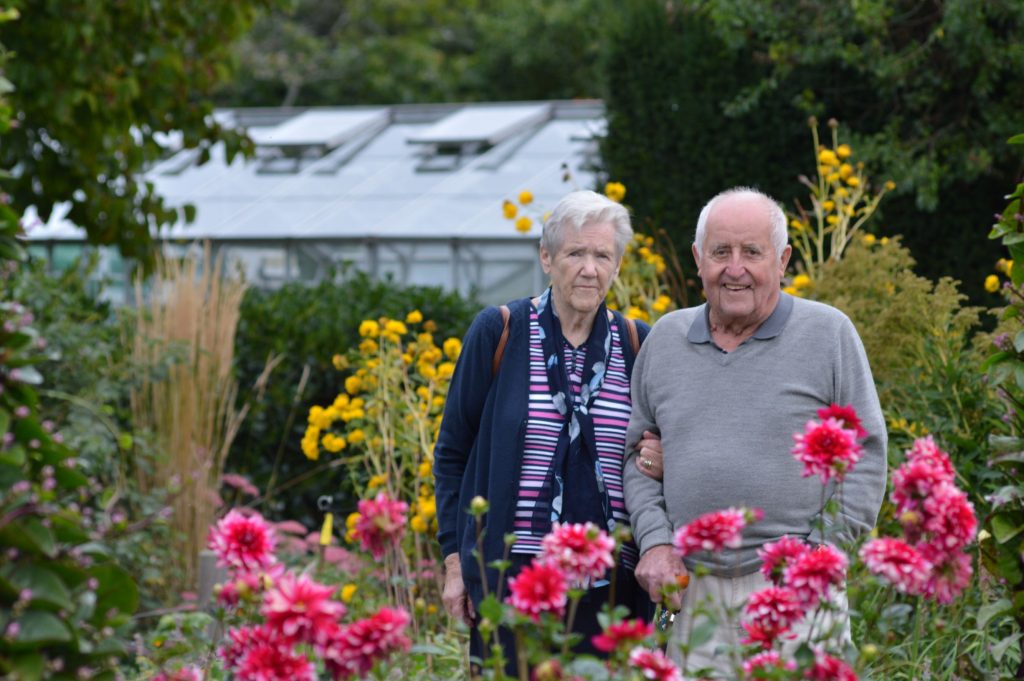
Pam & Reg in amongst a garden, one of Reg’s great loves
“But I haven’t seen him for so long,” says Pam, her voice breaking. Reg is prone to chest infections and the care home have followed the guidance, so nobody within the family has been allowed to see him. The home also believes that if Pam were to see Reg from behind a window he wouldn’t understand, and it would be too unsettling.
“I haven’t seen him for so long,” says Pam who hasn’t seen her husband Reg since March. “I just worry that he thinks I’ve abandoned him.”

Reg in his care home, Pen Inney
Pam is assured the care home is doing all it can for Reg. He was happy and in the early days helped with the washing up and laundry and spent a lot of time looking for where the band was! Pam explains, “When Reg was young, he played in the town’s brass band and they often performed in the care home when it was a private care home.” He loved music, his garden and being outside. So it feels particularly cruel that he no longer has access to these loves, as all groups have had to stop. “He was happy in himself, but they say he’s very quiet now and doesn’t speak. I just worry that he thinks I’ve abandoned him,” says Pam.
Dementia takes loved ones piece by piece
It’s hard to find the words to convey the sadness of this terrible situation. Dementia is a cruel disease that takes loved ones away piece by piece far too soon. Pam is grieving for her husband but there is no resolution and she wonders if she will ever see him alive again.
Pam was a church warden and verger for over forty years at St Thomas’s in Launceston and had been grateful for her church community. She was particularly touched when, after mentioning to a friend that she had made a promise to herself to buy a large print Bible when lockdown was over, a new Bible arrived in the post.
“Prayer really helps. I don’t know how I would get through all of this otherwise. Many people are going through far worse than me, but what can you do? I could cry all day but praying makes me feel like I’m not alone.”
“I could cry all day but praying makes me feel like I’m not alone.”
The loneliness of grieving alone
For Jenny, in Falmouth, saying goodbye to her beloved husband George happened during lockdown. He had lived with dementia for almost a decade, but became ill with hydronephrosis, a kidney complaint. He was very close to being admitted to a hospice, but Jenny was grateful for the home support that gave her the strength to keep caring for him. “He wasn’t just a proud Cornishman, but a proud Falmouth man and I knew he would want to die in his home-town.”
Jenny and George met on an impulsive trip to Borneo that they both made from different parts of the UK. Within a month George proposed and within six they were married. “George knew how important my faith was to me. He agreed to some cunning planning by the vicar in Surrey who married us to attend an Alpha course prior to our wedding. On the first night, George met a young woman whose father, it transpired, had delivered milk to George back in Cornwall. It felt like God had planned it all and was bringing us together.”
- Jenny & George last year
- George proudly wearing his Cornish bowtie
“It felt like God had planned it all and was bringing us together,” says Jenny of her marriage to George.
In later years, George was confirmed aged 74. It was important to him because, as an ex-service man, he wanted to do things right and take communion when they went together to Israel.
Jenny is so grateful for the rich life she enjoyed with George. They were together for twenty years, and as retirees, spent every day in each other’s company. She is thankful that she could be with him as he died, but it came very quickly. “I wasn’t expecting to have to talk about choices over burial or cremation so soon into his decline and although everyone involved in his care and in our home couldn’t have been kinder, they weren’t my friends or family.”
“I felt so alone. No one was able to hug me. I would get cross and chunter away at the Lord, and then feel a bit better, knowing I wasn’t truly on my own.”
The grieving and aftermath of George dying were wretched for Jenny. “I felt so alone. No one was able to hug me. I would get cross and chunter away at the Lord, and then feel a bit better, knowing I wasn’t truly on my own.” Jenny saw friends on Zoom and has been very supported by her church family at Buddock Water, but sorely missed the physical presence of a community around her.
But practical things were hard too, like the space downstairs where his hospital bed was. “At first, I thought I would sell the house as it was full of painful reminders. It’s been hard to look back at happier times as there is so much grief in the way, but it’s getting easier. It’s a bit like reading my book in bed. I can’t wear glasses as I like to lean into the pillow, but I’m very short sighted so have to have the book really close. Everything feels very close at the moment, but I know it will gradually recede – like the book, the grief will still be there, but it won’t be so close.”
Things have to change to stop this heartbreaking separation for dementia sufferers
It has been an immense privilege to talk to Jan, Pam and Jenny and hear their stories. I laughed along with them as they talked of the joys of their relationships, and tried not to cry when they spoke of the pain of their losses. Dementia during this pandemic has been especially hard to live with. For far too many, the experiences are beyond comprehension. Being locked into a limited world of distant memories where faces of those most loved are forgotten is hard enough. But to be physically separated from those loved ones is a particular cruelty.
It’s positive that tentative plans seem to be forming to allow families tend to their loved ones, but these plans need to ramp up urgently and gather pace.
Registering a family member as a primary carer brings so much relief to all, as Jan found. It helps the care home, reassures the sufferer and brings hope to the family that they are doing something positive to help. With regular testing, the fact that most residents of a care home have their own room and the extra support to over-worked staff make a compelling argument to offer hope for those living with dementia.
If you are living with dementia and want to talk to someone the Alzheimer’s Society are doing some excellent work in helping to bring people together during this time. Your local vicar and parish pastoral team would also be a great place to start.
Prayer for everyone living with dementia
Loving God,
You know and share the pain we feel, the challenges we face living with dementia,
You know too that the Covid Pandemic has increased our bewilderment,
Assure us we pray of your steadfast love, guiding us through.Compassionate God,
You have blessed us with travelling companions to share our journey, loved ones, family, friends,
May they continue to draw strength from your unwavering presence.Infinite God,
When our journey is nearing its end, and we lose our sense of who you are, may we rest in peace trusting that you will never forget us.
